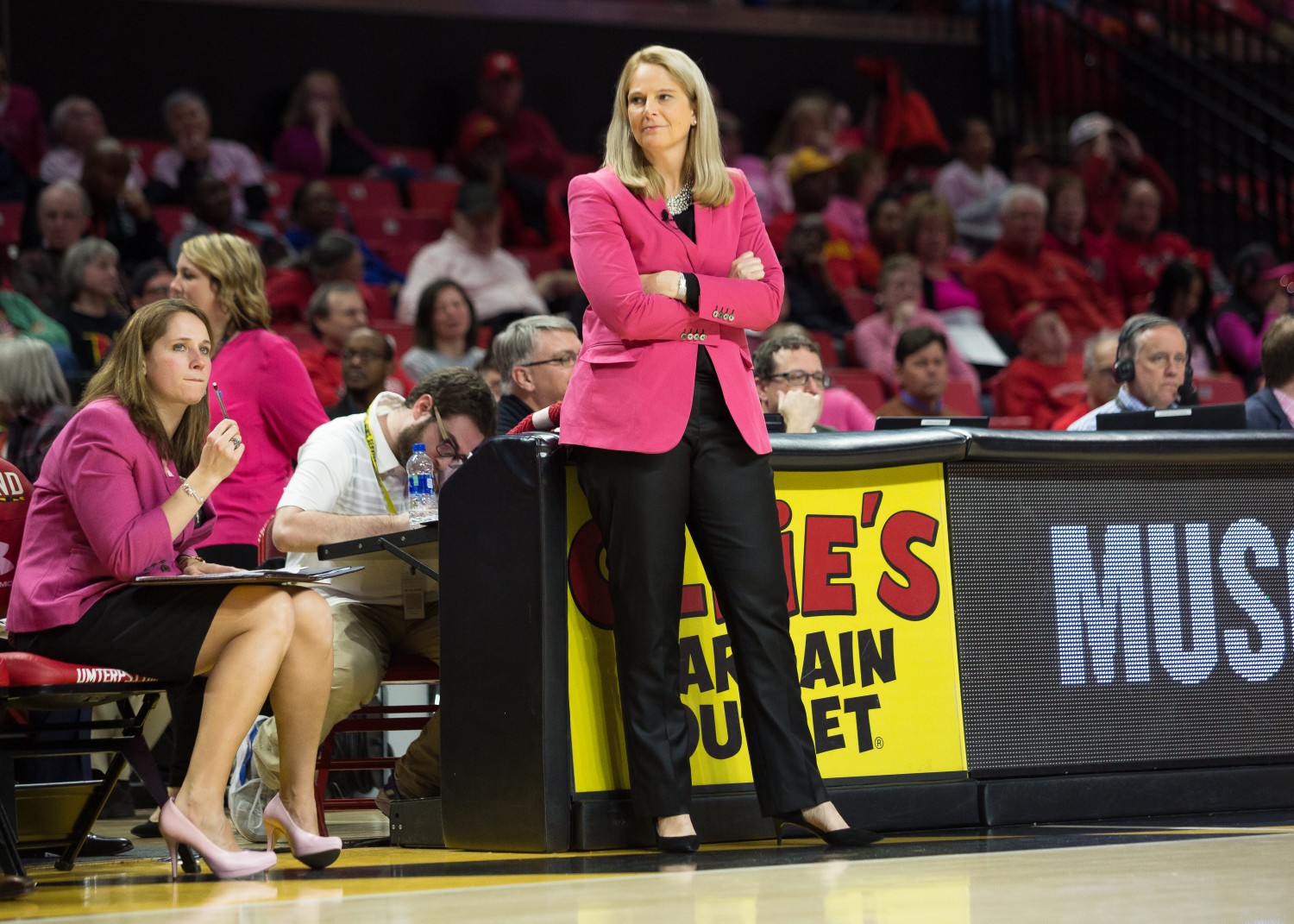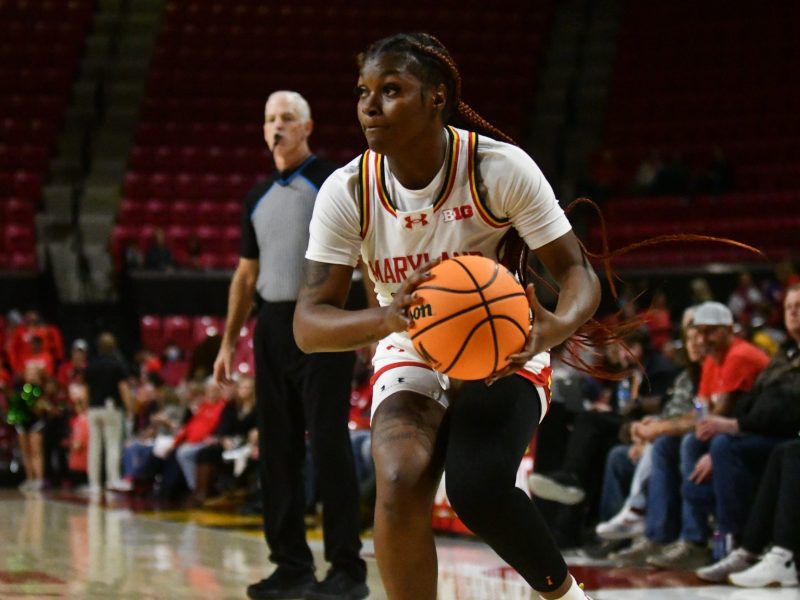After Maryland women’s basketball guard Kristen Confroy slapped away Rutgers guard Tyler Scaife’s pass on Sunday, she managed to gather the ball and beat Scaife for a contested layup at the other end.
The play, with two-and-a-half minutes remaining in the second quarter, put the No. 10 Terps ahead 36-26 — their first double-digit lead of the day — as part of a 13-1 run before the break.
The sequence also exemplified the team’s defense-first approach, which has been an asset all year and propelled it to a 72-54 victory in Piscataway, New Jersey.
“We just came in with great poise and composure,” coach Brenda Frese said. “For us to have a positive assist-to-turnover ratio with their defensive presence, I thought we did a tremendous job. This team just continues to keep finding ways.”
[Read more: Maryland women’s basketball defeats Rutgers, 72-54, for its seventh consecutive win]
Early in the season, the Terps maintained a positive assist-to-turnover ratio throughout their first three games. However, their 20 turnovers and 9 assists at No. 1 Connecticut on Nov. 19 kicked off a stretch in which Maryland produced a negative assist-to-turnover ratio in four of six games. In two of the Terps’ losses this season, they had more turnovers than assists, with Connecticut and Michigan State taking advantage of Maryland’s weakness.
However, the Terps have rectified the issue in recent weeks, and that came to the forefront against Rutgers. While 13 assists isn’t a groundbreaking statistic, the Terps were careful with the ball Sunday, giving it away just 11 times.
After previous games, freshman point guard Channise Lewis has discussed her growing confidence, and Frese is often quick to note Lewis’ improvement and importance. She led with five of Maryland’s assists against Rutgers.
While Maryland limited its giveaways, it dominated the game in forcing turnovers. The Terps made Rutgers cough up the ball 22 times.
Rutgers’ 54 points was the fewest Maryland has allowed in Big Ten play and just the second time it held a conference foe to under 60.
Guard Kaila Charles has said when the Terps are playing well defensively, it increases their energy on offense. That showed in Maryland’s 18 points off turnovers and 11 on fast breaks.
“We got a lot more aggressive. … Our steals, we were pushing … and being able to steal to score,” Frese said. “Our intensity on the defensive end really picked up.”
The Terps defeated the Scarlet Knights for the second time in 10 days, permitting six fewer points than the first time and forcing twice as many turnovers.
Both times, the Scarlet Knights shot under 38 percent from the field. As Maryland’s offense continues to run smoothly, its defense is difficult to crack.
“This is probably one of our better defensive teams, believe it or not,” Frese said. “We’re not that big, but defensively we’ve been able to do a lot of different things.”



